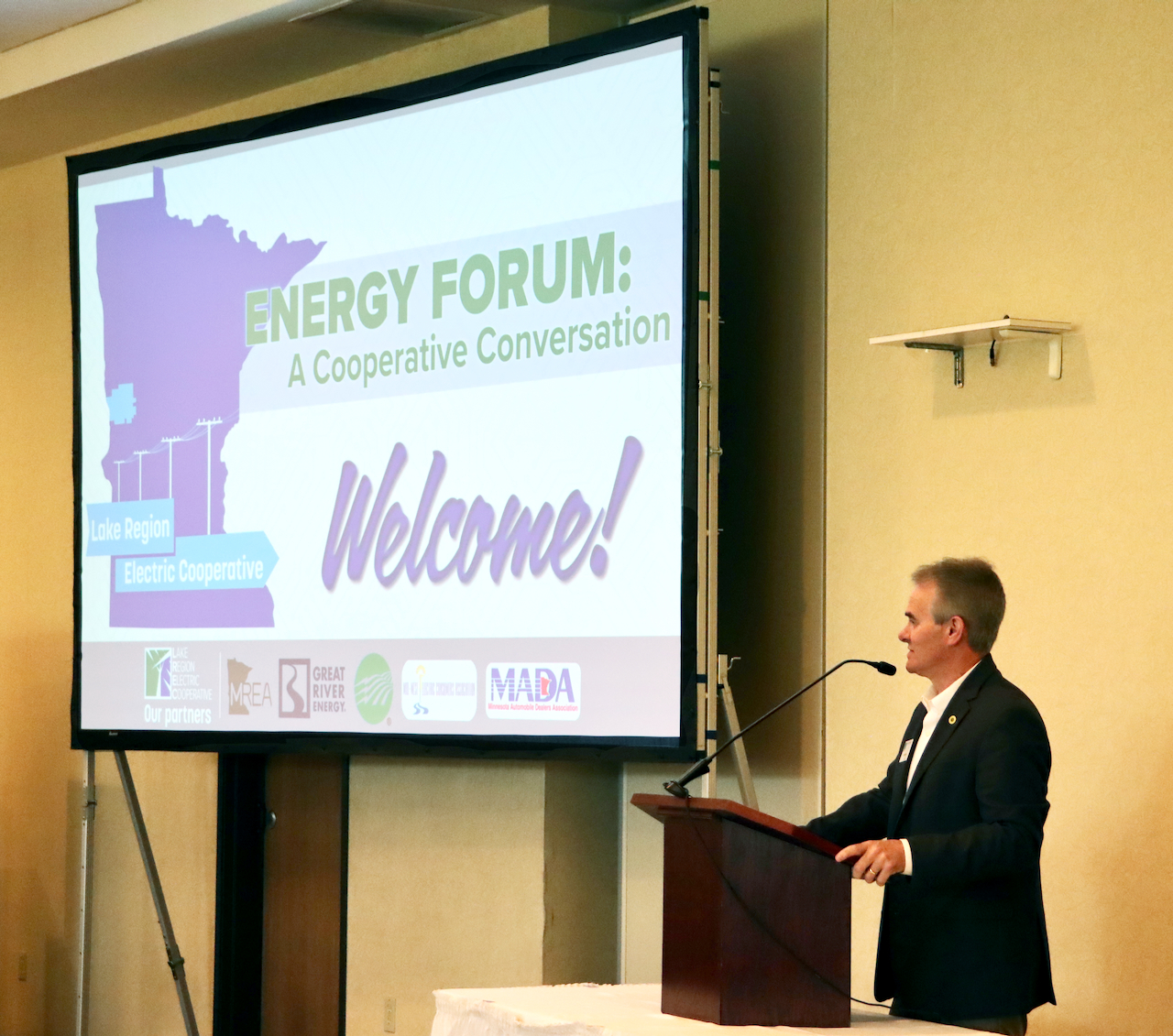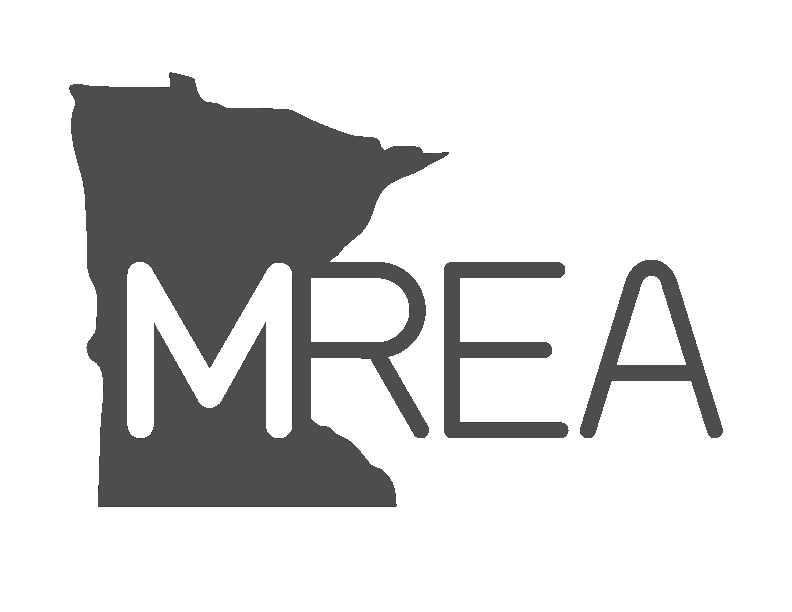Energy experts discuss reliability challenges and solutions at LREC Energy Forum

Thompson welcomed everyone and shared multiple recent headlines that spoke to some of the changes facing utilities. He spoke to the importance of member engagement and highlighted LREC’s strategy of seeking a high level of member engagement as the cooperative strives to be its members’ local, trusted source of information.
After Thompson’s presentation, Jeff Haase, of Great River Energy (GRE), who served as moderator of the Energy Forum, welcomed National Rural Electric Cooperative Association (NRECA) CEO Jim Matheson to the event.
“All cooperatives have the same mission of providing reliable and affordable power,” said Matheson. He discussed the challenges facing cooperatives brought about by more demand for electricity and through policy changes.
“Demand for electricity is skyrocketing,” Matheson said, “more so than it has anytime in the country before. There is a big drive to use electricity in applications that weren’t used for electricity in the past.”
Matheson cited the North American Electric Reliability Corporation (NERC), which has issued warnings that there is an increasing risk to reliability as lots of generation is being quickly retired. “NERC reported an increased risk for outages during normal peak circumstances,” Matheson said. “We need to build more generation and transmission as demand continues to increase.”
Matheson congratulated Lake Region for pulling together the event and mentioned he wished all NRECA members across the country would have this kind of opportunity for dialog and engagement.
The energy forum provided the opportunity for LREC’s member-owners, community leaders and the general public to hear firsthand how electric cooperatives are rising to meet the challenges of the transitioning energy economy. Attending the event were also senators and representatives from Lake Region’s area: Senator Robert Kupec, Senator Jordan Rasmusson, Representative Jeff Backer and Representative Tom Murphy.
Topics at the forum included power supply and transmission planning, reliabililty, renewable energy, hydro power and electric vehicles. The forum brought together a host of energy leaders to discuss how electric cooperatives are working to continue to provide ongoing reliable, affordable electricity to more than 1.7 million Minnesotans.
Minnesota Rural Electric Association CEO Darrick Moe discussed Minnesota’s100% carbon free legislation and its potential impacts to affordability and reliability of the electric system.
“It is the biggest policy change ever relating to energy in the state of Minnesota,” Moe said. “It is important to get the pace right. We need to slow down the shutdown of always available power sources.”
Leadership from Great River Energy — LREC’s wholesale power provider — also spoke at the event, including vice president and chief transmission officer Priti Patel, Jon Brekke, vice president and chief power supply officer, and Zac Ruzycki, director of resource planning.
“Great River Energy is well equipped to meet the carbon free standard goal of 90% by 2035,” Ruzycki said. “Reaching 100% is more challenging.”
Patel discussed how more transmission is needed for providing reliable and affordable power. And, that as each step is taken in decarbonizing the grid, it becomes exponentially harder to achieve it.
Brekke explained the intracacies of the complex Midwest Independent System Operators (MISO) marketplace. MISO is the organization that maintains reliability in the region and covers 15 states and Manitoba, Canada.
“Hydropower is a low cost baseload power,” Jim Horan, exeutive director of the Mid-West Electric Consumers Association, said as he explained the operation of the United States hydropower system. “Hydropower backs up wind and solar power that aren’t available all the time,” he said. Mid-West Electric promotes and protects the interests of federal power customers and their consumers within the Missouri River Basin.
Steve Nisbet of the Minnesota Automobile Dealers Association discussed the growth of the electric vehicle market. He also talked about how electric vehicles bring pressure on utilities to provide larger transformers to support more large scale DC fast charging. The adoption rate for EVs in Minnesota was 5.4% in 2023 vs. 8.2% nationally. Nisbet works to help dealers provide resources and information for EV buyers, so they can understand rates and charging options at their house, where most of the charging takes place for EV owners.
After the speakers, there was a robust round of questions as well as breakout sessions to dive into deeper discussion on specific topics. The audience at Lake Region’s event was very engaged. Marian Bongenreif is an example LREC’s engaged members. She came because she had learned a lot at another event sponsored by the cooperative. “It was like a college course,” she said. “It was so inspiring.”
If you would like to view a recording of the Energy Forum, please visit www.lrec.coop/EnergyForum.
